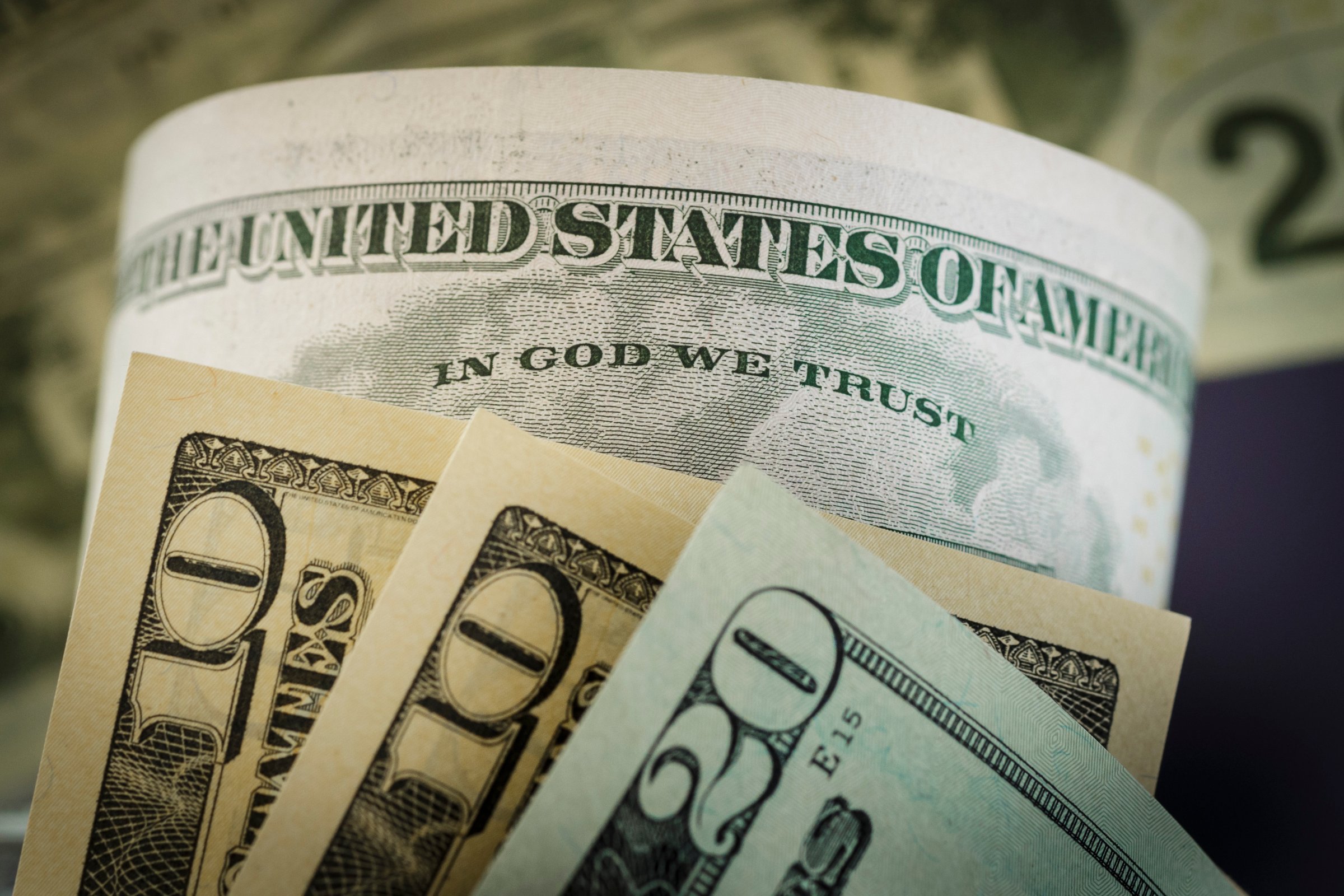
A lawyer filed suit in Ohio this week seeking to remove the phrase “In God We Trust” from U.S. currency. It’s far from a new fight, and as with many interactions between religion and the American state (like the “under God” part of the Pledge of Allegiance), the invocation of the almighty is newer than you might think.
“In God We Trust” was first added to U.S. coins during the beginning of the Civil War, when religious sentiment was on an upswing and concerned Americans wanted the world to know what their country stood for. Many wrote to Secretary of the Treasury Salmon P. Chase on the matter, and he agreed with their arguments. Congress passed his act requesting the addition of “In God We Trust,” adapted from a lesser-known verse of Francis Scott Key’s “Star-Spangled Banner,” and the first two-cent coin with the phrase was minted in 1864.
But as TIME wrote in a 1991 cover story on the separation of church and state, opposition lay ahead.
By the turn of the century, however, the war’s memory had faded; President Teddy Roosevelt considered the mingling of God and Mammon to be vulgar, and he ordered the phrase removed from newly designed gold coins in 1907. A public outcry forced Congress to backtrack. By the mid-1950s, the concern with piety in Washington had apparently deepened; in 1955 Congress ordered the same phrase to appear on all paper currency.
The motto appeared on paper currency beginning in 1957, and in the subsequent decades, numerous legal actions have sought to remove it from currency and strike “under God” from the Pledge of Allegiance. But as TIME wrote in that ’91 story, the banality of the phrases may not be worth the fight as a symbol of separating church from state. “Today even ardent separationists seem to agree with retired Supreme Court Justice William Brennan, who wrote in 1983 that slogans such as ‘In God We Trust’ have ‘lost any true religious significance.'”
More Must-Reads from TIME
- Donald Trump Is TIME's 2024 Person of the Year
- Why We Chose Trump as Person of the Year
- Is Intermittent Fasting Good or Bad for You?
- The 100 Must-Read Books of 2024
- The 20 Best Christmas TV Episodes
- Column: If Optimism Feels Ridiculous Now, Try Hope
- The Future of Climate Action Is Trade Policy
- Merle Bombardieri Is Helping People Make the Baby Decision
Contact us at letters@time.com